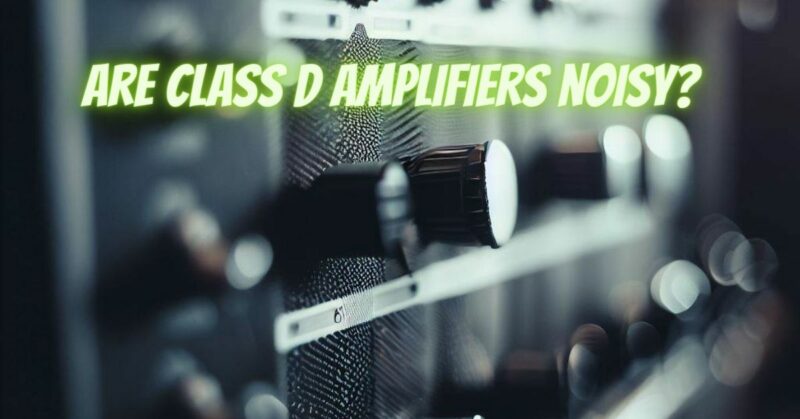Class D amplifiers are a type of audio amplifier that is known for its high efficiency and low power consumption. However, some people believe that class D amplifiers are also noisy. Is this true?
The Basics of Class D Amplifiers
Class D amplifiers work by switching transistors on and off very quickly. This switching creates a high-frequency signal that is then filtered to produce the desired output signal. The switching frequency is typically in the range of 100 kHz to 1 MHz.
The Noise Issue
The switching frequency of class D amplifiers can create a high-pitched noise that is audible to some people. This noise is often referred to as “switching noise” or “PWM noise.”
The amount of switching noise that is produced by a class D amplifier depends on a number of factors, including the switching frequency, the quality of the amplifier’s components, and the design of the amplifier.
How to Reduce Switching Noise
There are a number of things that can be done to reduce switching noise from class D amplifiers. One way is to increase the switching frequency. This will move the noise to a higher frequency that is less likely to be audible.
Another way to reduce switching noise is to use high-quality components in the amplifier. This will help to ensure that the switching is clean and efficient.
Finally, the design of the amplifier can also play a role in reducing switching noise. Some amplifiers are better designed than others to minimize noise.
Class D amplifiers can be noisy, but the amount of noise that is produced depends on a number of factors. There are a number of things that can be done to reduce switching noise from class D amplifiers, including increasing the switching frequency, using high-quality components, and designing the amplifier carefully.
In general, class D amplifiers are not as noisy as they used to be. Modern class D amplifiers are very well-designed and produce very little noise. If you are concerned about noise, you should do some research on the specific class D amplifier that you are considering buying. You should also read reviews from other people who have used the amplifier.


